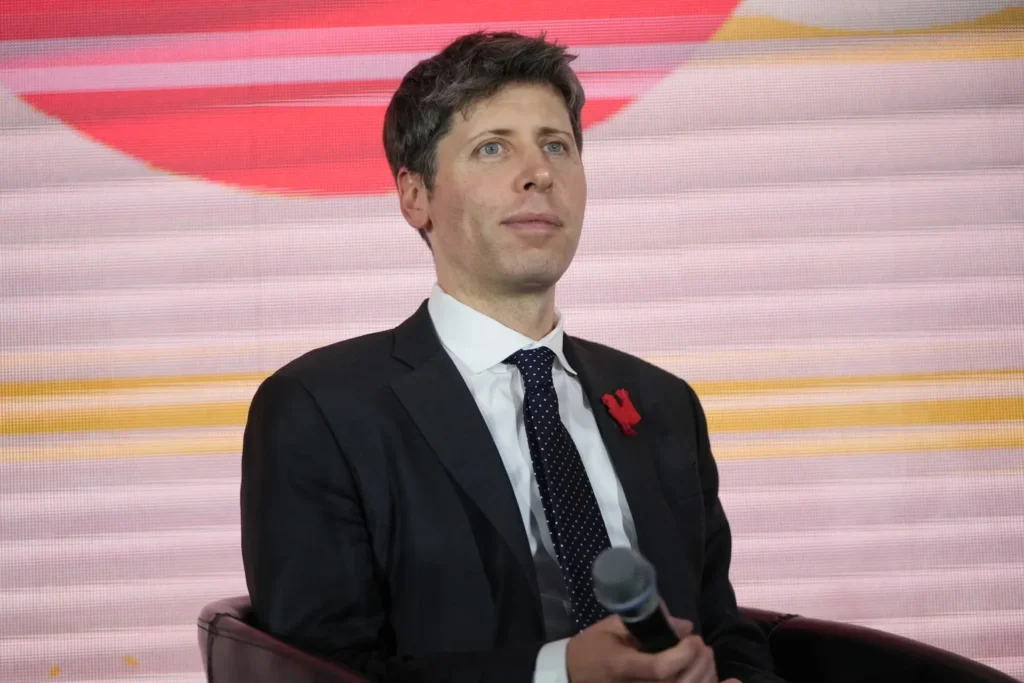
Inside the Mind of Sam Altman: Keach Hagey’s New Biography Reveals the Man Shaping the Future of AI
In her new book, The Optimist: Sam Altman, OpenAI, and the Race to Invent the Future, Wall Street Journal reporter Keach Hagey explores the rise of Sam Altman — the influential co-founder and CEO of OpenAI — and his role in shaping the modern AI era.
The biography traces Altman’s journey from a curious, tech-driven childhood in the Midwest to his leadership roles at mobile startup Loopt, famed accelerator Y Combinator, and ultimately, OpenAI. Hagey also provides new insight into the now-infamous internal power struggle that briefly saw Altman ousted from OpenAI — a moment employees refer to as “the Blip.”
The Power Struggle That Shook OpenAI
Hagey argues that the dramatic attempt to remove Altman revealed deep flaws in OpenAI’s governance. With a nonprofit board overseeing a for-profit company, the structure is “not stable,” she says. After investor pressure and employee loyalty forced Altman’s return, the company walked back plans to shift more power to the for-profit arm.
This instability could impact OpenAI’s ability to raise funds — a critical factor for a company operating in such a capital-intensive industry.
“My research into Sam suggests he may rise to the challenge,” Hagey told TechCrunch. “But success is not guaranteed.”
Altman’s Politics, Pragmatism, and the Trump Connection
The book also explores Altman’s political views, which Hagey describes as “traditionally progressive.” However, Altman has demonstrated a unique ability to forge deals across political lines — even working with the Trump administration to secure major infrastructure partnerships.
“Altman and Trump are both dealmakers,” Hagey explains. “Trump respects big deals with big price tags — and that’s where Altman excels.”
Behind the Biography: Altman’s Reaction and Trust Factor
Altman was initially hesitant about the book, skeptical of focusing too much on individuals over broader movements. Eventually, he cooperated, sitting down with Hagey for several interviews. Still, he maintained distance from the final product and has said he won’t read it.
A recurring theme in the book is trust — or the lack of it. Altman’s strengths as a storyteller and fundraiser have helped him build powerful networks, but some critics say his words don’t always match outcomes. Hagey notes a pattern of management challenges across Loopt, Y Combinator, and OpenAI, often tied to Altman’s discomfort with conflict.
The Bigger Picture: AI Hype, Power, and Progress
Hagey places Altman within the broader context of the AI boom — and the hype that surrounds it. She points out that even extreme views, whether utopian or apocalyptic, share the same belief: that AI will radically transform the world.
“The doomers and the boomers are part of the same hype universe,” she says.
Her research suggests Altman has long believed that government should play a central role in funding and regulating AI development. Inspired by mid-20th-century models like Bell Labs and Xerox PARC, he has pushed for a new wave of public-private tech partnerships — and now, he’s getting them.
A Personal Story of Idealism, Ambition, and Identity
Hagey also dives into Altman’s upbringing and identity. She traces the influence of his father’s idealism and his mother’s drive, as well as Altman’s experience growing up gay in the Midwest. His resilience and optimism, she argues, are central to his leadership style — and perhaps why he’s emerged as one of the most important figures in the AI industry.
- Sam Altman biography
- OpenAI CEO
- Keach Hagey book
- AI industry leadership
- OpenAI power struggle
- AI funding and governance
- AI politics and infrastructure
- U.S. AI strategy